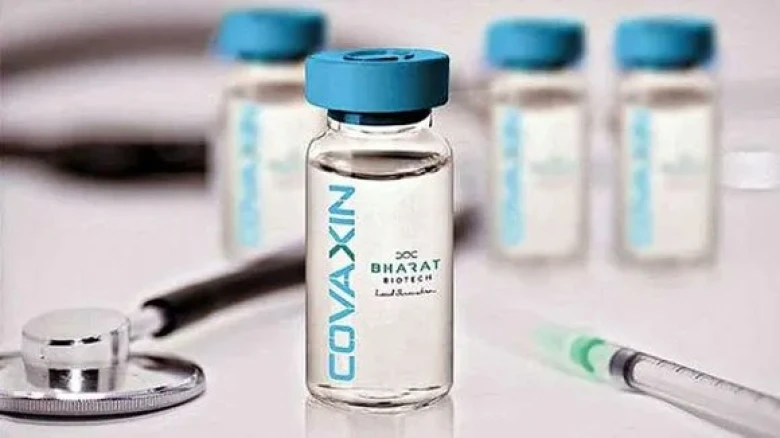Sports

The study, which was published in the journal Springer Nature, offers a comprehensive look at the long-term safety of the BBV152 vaccine, known as Covaxin...
Digital Desk: A recent study conducted by researchers at Banaras Hindu University (BHU) has found that nearly one-third of individuals who received Bharat Biotech’s Covaxin vaccine for COVID-19 reported adverse events of special interest (AESI). The study, which was published in the journal Springer Nature, offers a comprehensive look at the long-term safety of the BBV152 vaccine, known as Covaxin, in both adolescents and adults.
Study Overview and Key Findings
The study followed 926 participants—635 adolescents and 291 adults—over one year from January 2022 to August 2023. Researchers conducted telephonic interviews to track long-term adverse events post-vaccination. The findings revealed a significant occurrence of AESIs among the participants, with 30% reporting new-onset skin and subcutaneous disorders, general disorders, and nervous system disorders.
Among adolescents, the most common AESIs included new-onset skin and subcutaneous disorders (10.5%), general disorders (10.2%), and nervous system disorders (4.7%). In adults, general disorders (8.9%), musculoskeletal disorders (5.8%), and nervous system disorders (5.5%) were prevalent.
Serious Adverse Events and Infections
The study also highlighted serious AESIs, which occurred in 1% of the participants. These included severe conditions such as stroke and Guillain-Barre syndrome. Furthermore, nearly 50% of the participants reported infections during the follow-up period, primarily viral upper respiratory tract infections.
Among the female participants, 4.6% experienced menstrual abnormalities, while ocular abnormalities and hypothyroidism were observed in 2.7% and 0.6% of the participants, respectively. There were four deaths reported among the adults, all of whom had pre-existing conditions such as diabetes and hypertension. Notably, two deaths were attributed to stroke, and one was linked to post-COVID-19 rhinocerebral mucormycosis.
Increased Risks for Certain Groups
The study identified higher odds of persistent AESIs in specific groups. Adolescents with pre-vaccination COVID-19, those with co-morbidities, and individuals who contracted typhoid post-vaccination had significantly higher risks of persistent AESIs. Adults with co-morbidities were found to have more than twice the odds of experiencing AESIs and persistent AESIs. Additionally, those who received three doses of Covaxin were at a fourfold higher risk, and those who received one dose were at double the risk, compared to those who received two doses.
Implications and Need for Extended Surveillance
Given the significant incidence of AESIs, the study underscores the need for extended surveillance of individuals vaccinated against COVID-19. Persistent and serious AESIs necessitate heightened awareness and larger-scale studies to understand the incidence and nature of immune-mediated phenomena following COVID-19 vaccination.
The findings come amid increasing scrutiny of COVID-19 vaccines, especially following admissions by UK pharmaceutical giant AstraZeneca regarding rare side effects such as blood clotting and low platelet counts associated with its vaccine.
While Covaxin has been a crucial tool in the fight against COVID-19, the BHU study highlights the importance of continuous monitoring and research to ensure the long-term safety and efficacy of vaccines. Enhanced awareness and more extensive studies are essential to fully understand and mitigate the risks associated with COVID-19 vaccinations.
Leave A Comment